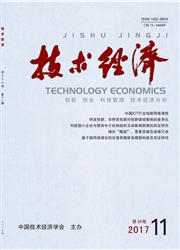

 中文摘要:
中文摘要:
以从2006年开始实行的环境约束性指标为研究对象,结合晋升锦标赛和弱排名激励理论,提出了官员排名赛理论,认为约束性指标制度的建立为地方政府提供了环境绩效排名的平台,由此推动了地方政府环境政策执行力度。利用2006—2015年中国省际环境数据,采用动态面板数据估计方法,实证检验了各省环境绩效排名对其未来环境政策执行力度的影响。实证结果表明,环境绩效排名落后的省份在未来1~3年显著提高了节能和减排的政策执行力度。
 英文摘要:
英文摘要:
Using the mandatory indexes since 2006 as the research objects,this paper presents a theory of bureaucratic ranking events based on the combination of promotion tournament theory and weak ranking incentive theory.It considers that the establishment of mandatory index system provides local governments with ranking platform of environmental performance,which promotes the implementation of environmental policies.And it uses China's provincial environmental data from 2006 to 2015to estimate the effect of provincial environmental performance ranking on future policy implementation by the dynamic panel data model.The result shows that the provinces that are currently lagged behind significantly improve their implementation of energy-saving and emission-reducing policies in next 1-3years.
 同期刊论文项目
同期刊论文项目
 同项目期刊论文
同项目期刊论文
 期刊信息
期刊信息
